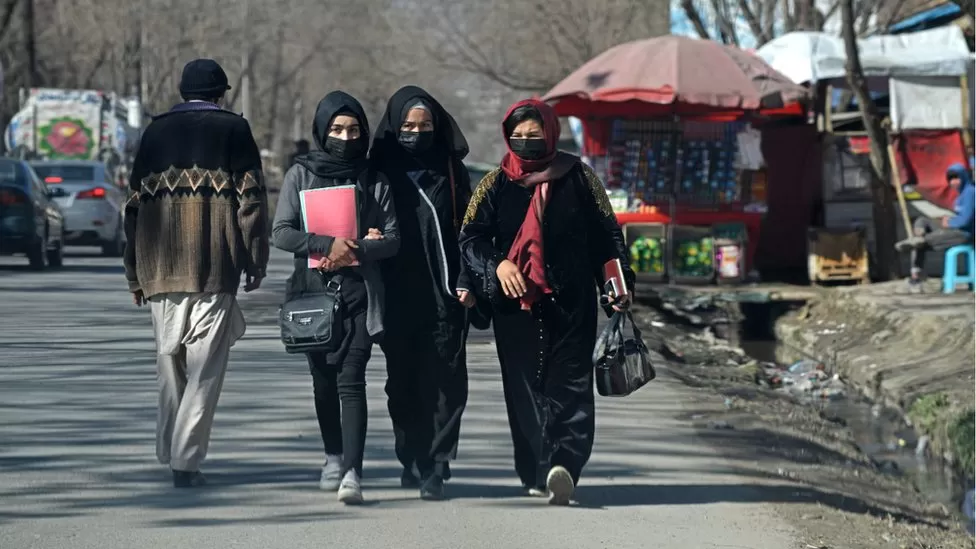The Taliban government has suspended university education for all female students in Afghanistan. The Taliban’s decision has shattered the hopes and dreams of many. “My heart has been bleeding since I heard those words,” says a 23-year-old political science student.

The Taliban have banned women from universities in Afghanistan, sparking international condemnation and despair among young people in the country.
Girls were barred from returning to secondary schools in March, after the Taliban ordered schools for girls to shut just hours after they were due to reopen following months long closures imposed after the Taliban takeover in August 2021.
Human Rights Watch criticized the ban on Tuesday, calling it a “shameful decision that violates the right to education for women and girls in Afghanistan.”
“The Taliban are making it clear every day that they don’t respect the fundamental rights of Afghans, especially women,” the rights watchdog said in a statement.
The US condemns “the Taliban’s indefensible decision to ban women from universities,” State Department spokesperson Ned Price said during a Tuesday briefing. The Taliban’s recent decision, he said, will “have significant consequences for the Taliban and will further alienate the Taliban from the international community and deny them the legitimacy they desire.”
‘My heart has been bleeding since‘
The Taliban’s latest decision has shattered the hopes and dreams of many.
Maryam, a 23-year-old political science student in Afghanistan, was finishing her university assignments on Tuesday evening, when her fiancé called to say that the Taliban had banned all women from universities. “He told me, ‘I am very sorry, you will not be able to take your final exams; universities have closed for you.’ My heart has been bleeding since I heard those words,” she told Al Jazeera.
The trauma of her loss was echoed by women across the country.
“I felt silent when I first heard the news. I still don’t have any words to describe the pain I feel in my heart,” said Sahar, a 22-year-old student of computer science, who requested her name be changed. She was in the last year of her course, and was hoping to apply for a master’s degree in the same field. “I was looking for courses for further education, and was even considering foreign universities. Now, I feel like my future is no longer in my control,” she said. “If I can’t study, my life is meaningless. It has no value.”
Women in Afghanistan can no longer work in most sectors, require a male guardian for long-distance travel and have been ordered to cover their faces in public. They have also imposed limits on girls’ education, banning women from certain workplaces as they stripped away rights they had fought tirelessly for over the last two decades. In November, Afghan women prevented from entering amusement parks in Kabul as the government announced restrictions on women being able to access public parks.
Sources: Al Jazeera, CNN, BBC

